‘I looked 9 months pregnant but it was a sign of ovarian cancer’
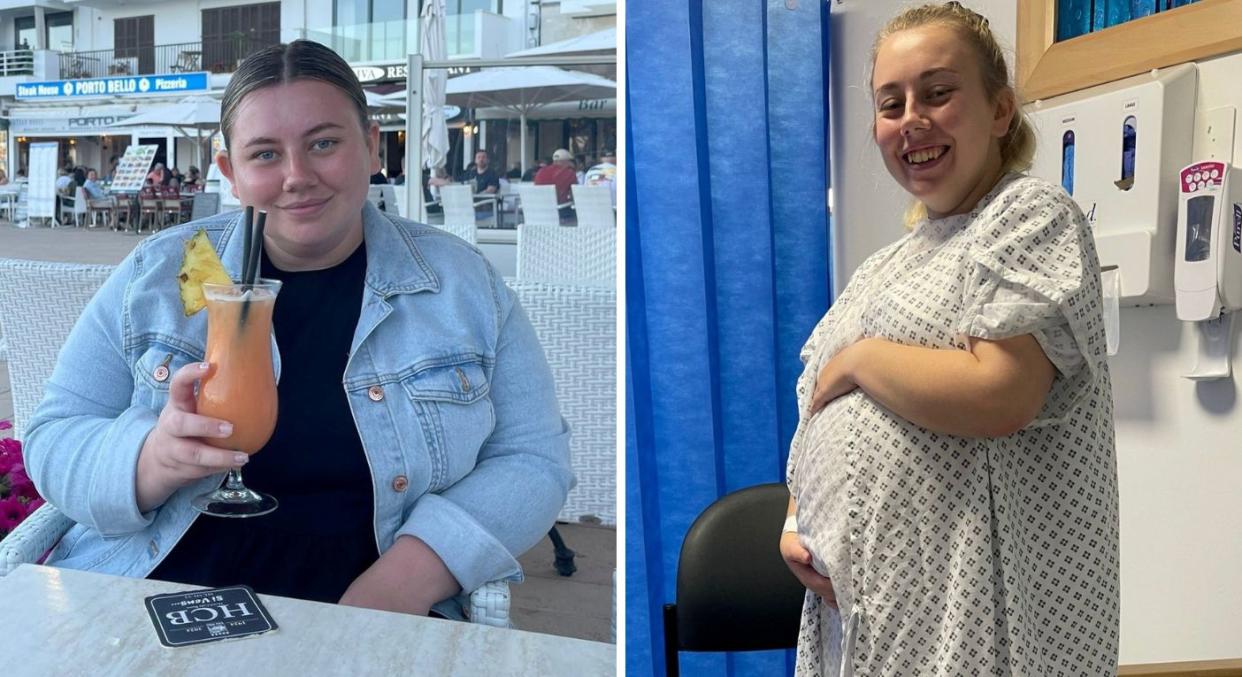
A woman diagnosed with ovarian cancer, aged just 23, initially thought she was just bloated and believed she was "too young" to have the disease.
Emma Colledge, now 25, first noticed her stomach bloating in February 2022 but by September that year she looked nine months pregnant.
An ultrasound scan revealed she had a 30cm cyst on her left ovary, which a biopsy confirmed was cancerous.
The admin assistant from Durham, County Durham, was diagnosed with stage 3c ovarian cancer and was told she'd need to undergo two major surgeries - including a hysterectomy and six rounds of chemotherapy.
“I didn’t believe it," she says of the moment she was diagnosed. "I just kept thinking 'I'm only 23.'
“To be honest, I felt angry. That I couldn’t change anything and that I didn’t know anyone else like me.”
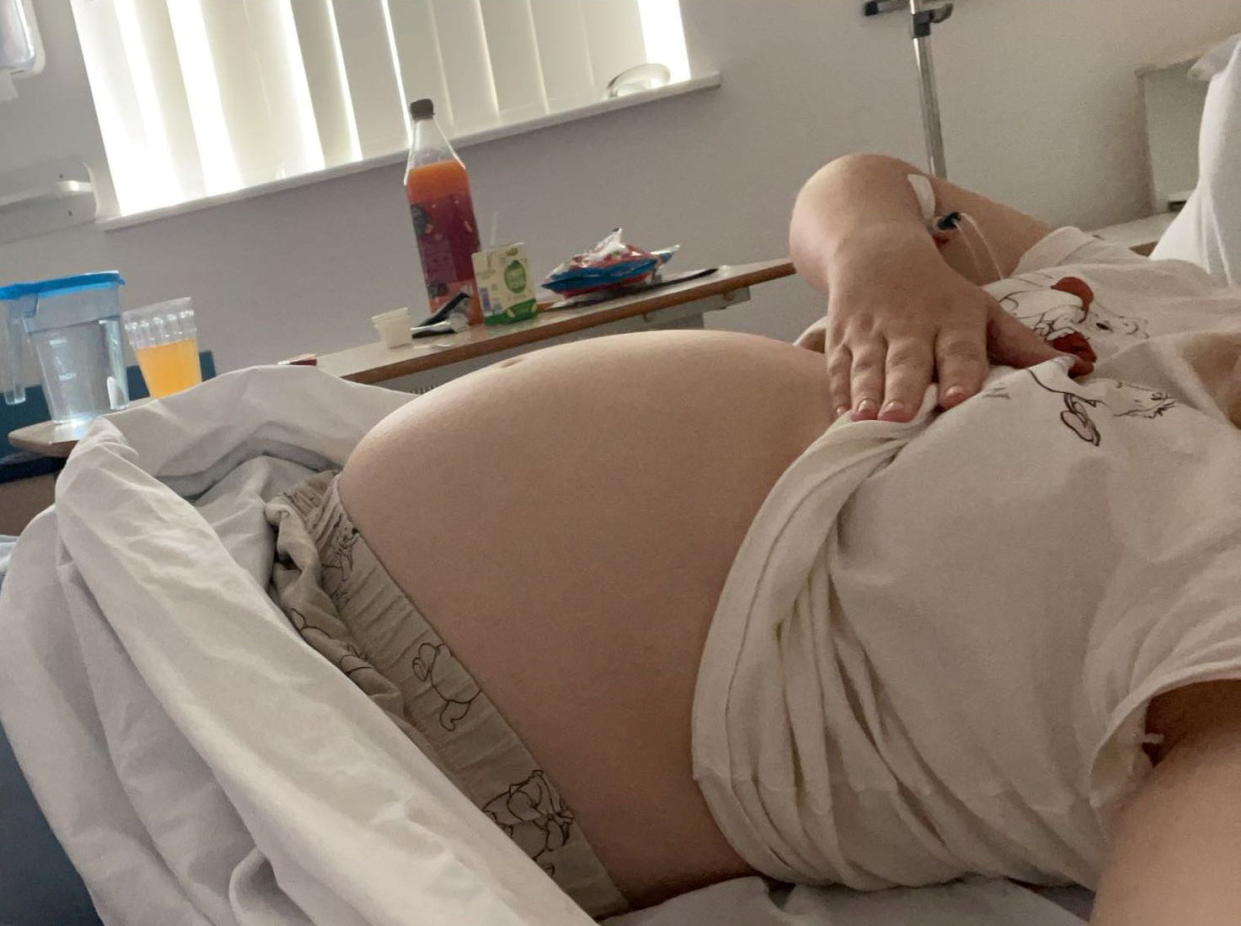
Colledge initially noticed she was becoming increasingly bloated after eating in February 2022.
When she lay on her stomach, she describes it feeling like there was a small ball inside of her.
She visited her GP the same month and says she was told to take a pregnancy test.
“My stomach was big and hard and we all thought I was pregnant,” she explains.
“But I knew I wasn’t because I’d done pregnancy tests before I went to the doctor.
“It was so out-of-the-question.”
Her doctor also referred her for an ultrasound scan and she was given anti-sickness pills to take in the meantime.
But during the six-month wait for the scan, Colledge’s symptoms worsened significantly.
She couldn’t eat anything without feeling or being sick and felt the need to urinate “constantly.”
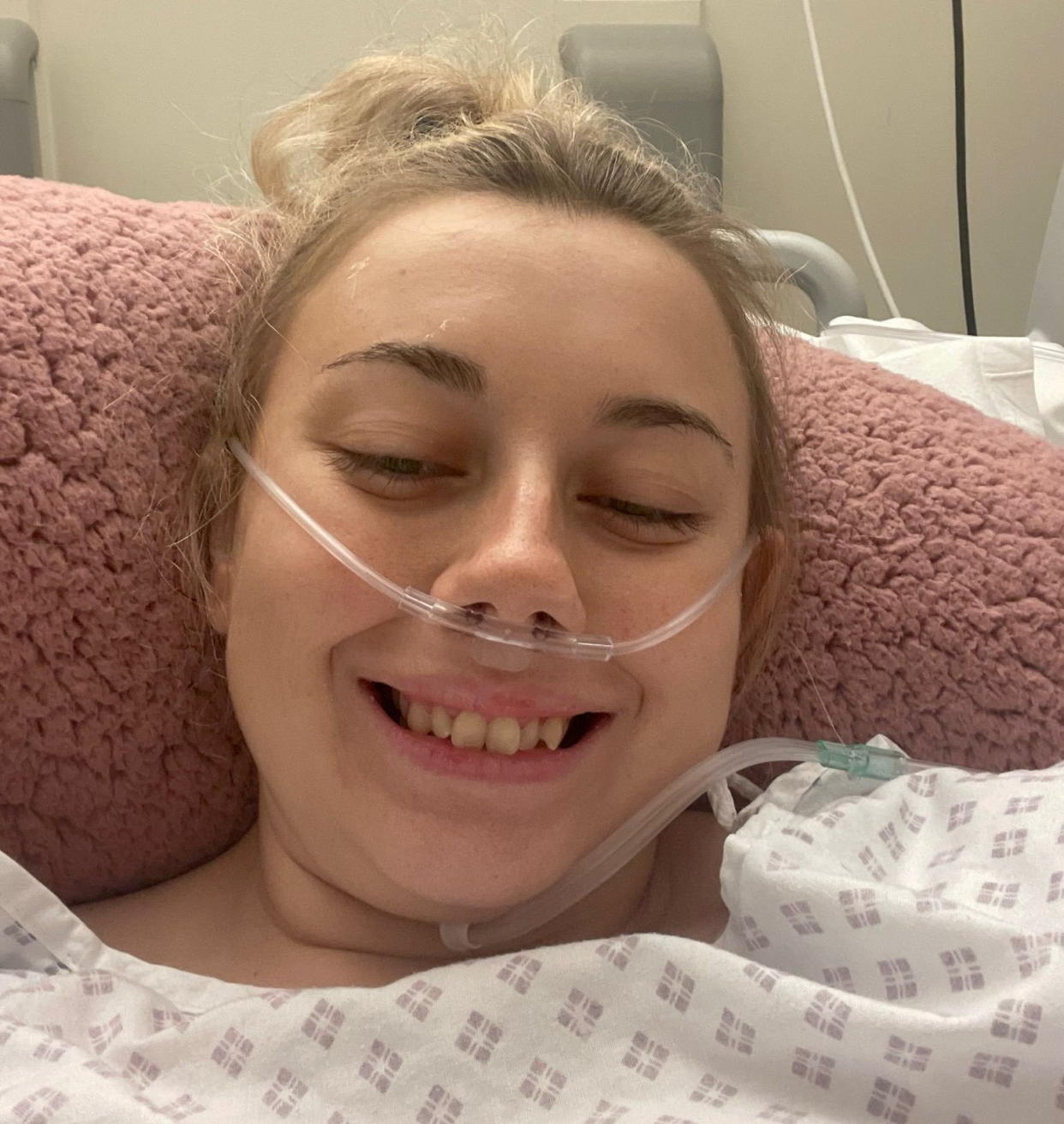
The ultrasound in September 2022 revealed she had a 30cm cyst in her left ovary, which was immediately biopsied.
Just one day later, she was confirmed to have stage 3c ovarian cancer and warned she would need to undergo intensive treatment.
The first step in Colledge's cancer treatment was to undergo a procedure to remove the tumour from her left ovary, which took five and a half hours.
Two months’ later she had her second surgery, to remove her womb, uterus, appendix and part of her bowel, which would keep the cancer from spreading.
“I was told the day after my first surgery that I’d need a second,” she says.
“I needed lots of organs removed - my uterus, cervix, appendix and part of my bowel.”
Having been left infertile by the hysterectomy, Colledge also had to come to terms with the prospect of not being able to have children.
While she was offered the chance to freeze her eggs ahead of the surgery, the waiting list was too long.
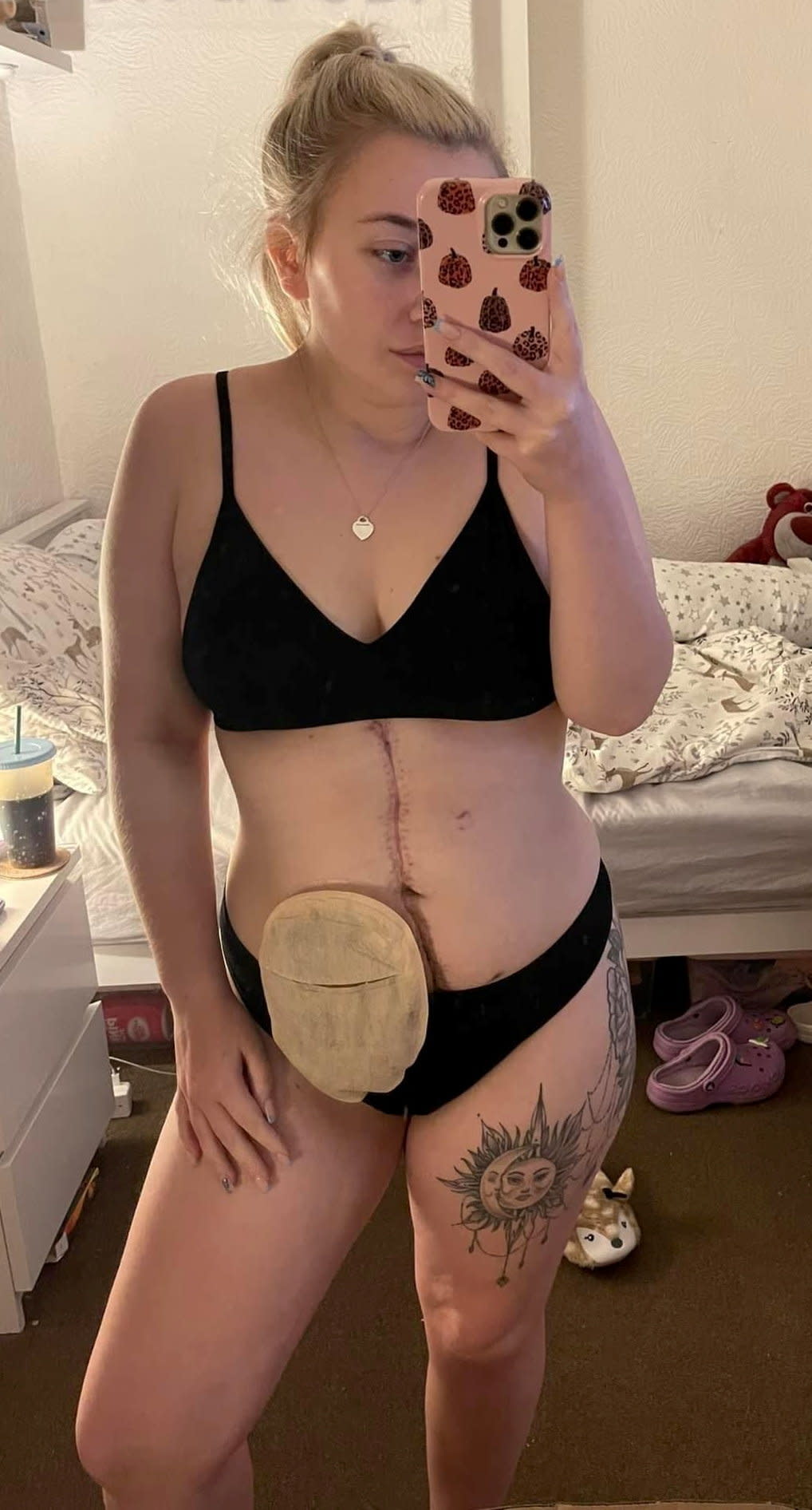
“I was so upset about the hysterectomy," she explains.
“I’ve always wanted to have kids, and to have that taken away was painful.
“But, if it was going to save my life, it was worth doing.
“My consultant was really good.
“She said 'you don’t have to have this if you don’t want to.’
“But she told me the cancer could potentially spread everywhere.
“So it was best to get it gone.”
Colledge was told she’d also need a stoma for a year, which knocked her confidence.
“I hated it," she says. "I wore baggy clothes to cover it up.
"I thought it was ugly - after everything I've been through I've got to use the toilet out of a bag."
Colledge’s six rounds of chemotherapy began in December and lasted until April.
Thankfully she recalls feeling surprised at how well she was able to cope with the side effects although she did lose her hair, experienced leg pain and lost her taste.
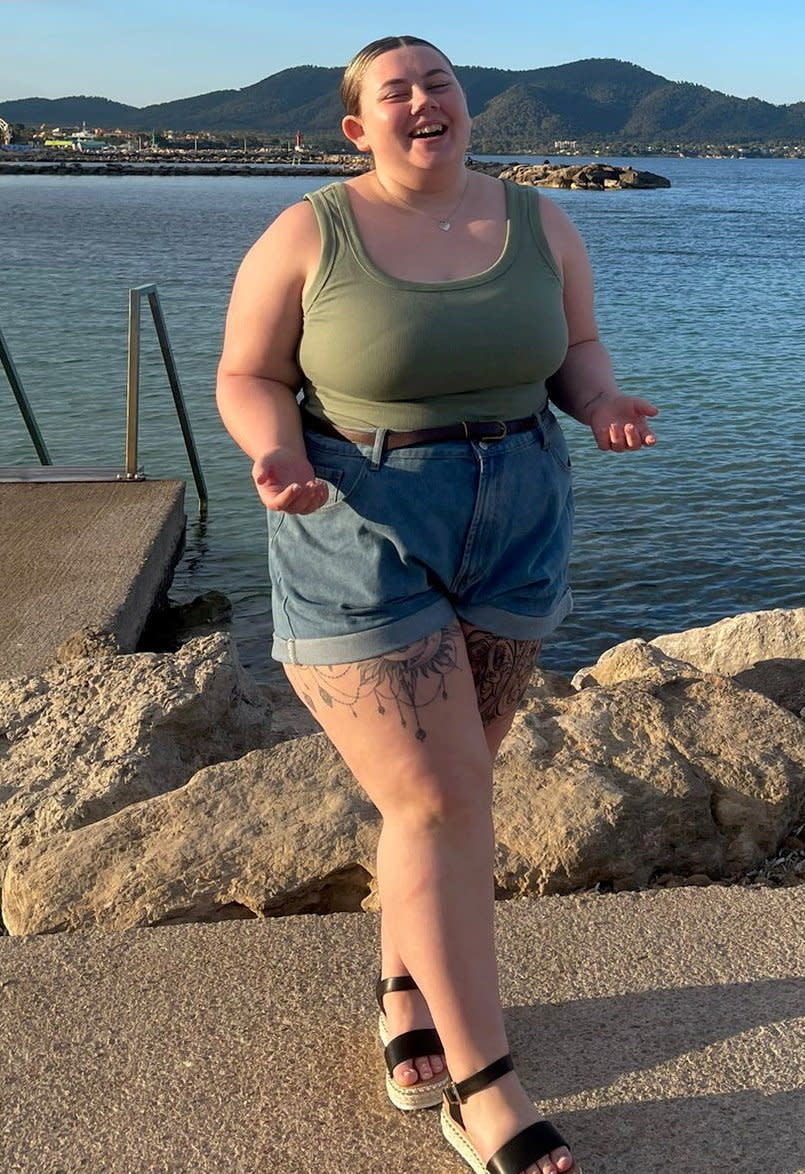
In May 2023, she was given the all-clear by her doctor and is now cancer-free.
“I still have blood taken every three months," she says. “And I had my stoma removed in October, but it took a while to get back to myself."
She is also hoping to find alternative ways to have a baby with her partner, Jake, 24.
“Jake and I have spoken about egg donors, adoption and fostering in the future,” she says.
Following her own experiences of the disease Colledge has helped create a network of other young women who have been diagnosed with ovarian cancer.
“Getting a diagnosis is so hard for young women,” she explains.
“It’s often dismissed as period pain, IBS and endometriosis.
“It’s such a fight to get doctors to look further into it."
Ovarian cancer: the facts
Ovarian cancer affects the two small organs (ovaries) that store the eggs needed to make babies, according to the NHS.
While anyone can get the disease, it mostly affects those over 50, and can sometimes run in families.
The trouble is that as symptoms are not always an obvious sign of cancer – like bloating – it is often diagnosed late.
The health service points out, however, that early diagnosis can mean it is more treatable.
A key sign of the disease is that you may have certain symptoms frequently, for roughly 12 or more times a month. As per the NHS, these include:
a swollen tummy or feeling bloated
pain or tenderness in your tummy or the area between the hips (pelvis)
no appetite or feeling full quickly after eating
an urgent need to pee or needing to pee more often
Other symptoms of ovarian cancer can include:
indigestion
constipation or diarrhoea
back pain
feeling tired all the time
losing weight without trying
bleeding from the vagina after the menopause
While these symptoms are common and may be a sign of something harmless, or another condition, it's important to get them checked by your GP to increase your chances of successful treatment, should you need it.
Treatments will depend on the size and type of ovarian cancer you have, where it is, if it has spread and your general health, but the main treatments include surgery and chemotherapy, while others include targeted medicines and hormone treatments.
Additional reporting SWNS.
Cancer: Read more
Man’s ‘bump on head’ turns out to be sign of skin cancer (Yahoo Life UK, 5-min read)
‘After bleeding on a restaurant floor I finally found out the real cause of my extreme periods’ (Yahoo Life UK, 5-min read)
'I was diagnosed with the exact same cancer as my mum' (Yahoo Life UK, 6-min read)
Watch: 'I had my ovaries removed at 19 and got skin cancer aged 21'


